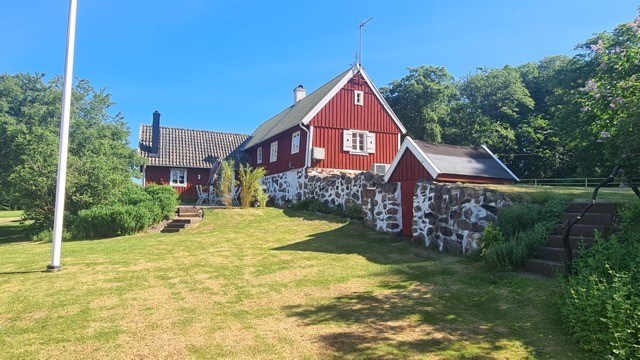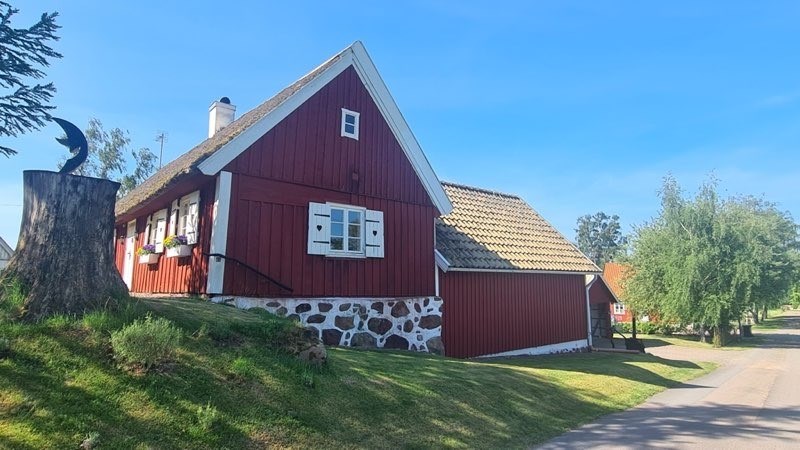Building for a Better World: Norfolk Students Bring STEM to Life with NASA Partnership
At Norfolk Technical Center in Norfolk, Virginia, carpentry students in Jordan Crawford’s first-year class aren’t just learning how to measure and cut wood—they’re discovering how their skills can serve a greater purpose.
When the NASA Science Activation program’s NASA eClips project—led by the National Institute of Aerospace’s Center for Integrative Science, Technology, Engineering, and Mathematics (STEM) Education (NIA-CISE)—needed help building weather instrument shelters for local schools, Norfolk Public Schools’ Career and Technical Education (CTE) team saw an opportunity to connect students to something bigger than the classroom. The shelters are used to house scientific equipment that K–12 students rely on to collect data using GLOBE (Global Learning and Observations to Benefit the Environment) protocols—a set of standardized, internationally recognized methods for gathering environmental data such as temperature, soil moisture, and cloud cover. These observations contribute to a global citizen science database, giving young learners a meaningful role in real-world environmental research.
Originally, shelters were being ordered from a national supplier to support GLOBE training sessions for teachers in GO (Growth & Opportunity) Virginia Region 5, an economic development region. These training sessions were funded through a generous grant from the Coastal Virginia STEM Hub (COVA STEM Hub), which supports regional collaboration in STEM education. But when the supplier couldn’t keep up with demand, Norfolk Public Schools CTE Specialist Dr. Deborah Marshall offered a bold solution: why not have local students build them?
That’s when the project truly took off. Under the guidance of Jordan Crawford, students took on the challenge of building 20 high-quality shelters in spring 2024, following precise construction plans provided through the GLOBE Program. Materials were funded by the COVA STEM grant, and the students rolled up their sleeves to turn lumber into lasting educational tools for their community.
“As an instructor, you look for opportunities that challenge your students, allow them to do things bigger than themselves, and let them see a project through from start to finish,” Crawford said. “This project allowed my students to hone existing skills and build new ones, and I saw incredible growth not just in craftsmanship but in teamwork. The most rewarding part was seeing the impact of their work in real schools.”
And the students rose to the occasion—taking pride in their work, learning advanced techniques, and developing new confidence. One of the most challenging parts of the build involved crafting the louvers—angled slats on the sides of the shelters needed for proper air circulation. Student Zymere Watts took the lead in designing and building a jig to make sure the louvers could be cut uniformly and precisely for every unit.
“Building the weather shelters was a fun and challenging task that pushed me to strive for perfection with each one,” said student Amir Moore. “After completion, I was delighted to see the faces of the people who were proud and happy with what we built.”“It was an extreme pleasure working on this project. I would love to work with NIA again,” added LaValle Howard. “I am proud to be a part of this vocational school and team.”Jaymyson Burden agreed: “It was fun and great to be exposed to the carpentry realm and install them in the real world. It was gratifying to know what we have done has an impact.”
After completing the shelters, the students volunteered to install them at seven Hampton City Schools. Their work completed the full circle—from building the shelters in their carpentry classroom to setting them up where younger students would use them to collect real environmental data.
Their dedication did not go unnoticed. The team was invited to NASA’s Langley Research Center for a behind-the-scenes tour of the NASA Model Shop, where they met Sam James, a Mechanical Engineering Technician and Fabrication Specialist. James showed the students how the same kind of craftsmanship they’d used is essential in the creation of tools and components for NASA missions. They also learned about NASA summer internships and discovered that their hands-on skills could open doors to exciting careers in STEM fields.
“It was an honor to help where we were needed,” said student Josh Hunsucker. “Assembling these gave us a new perspective on the importance of duplication and how each step impacts the result. We’re happy to help wherever or whenever we’re needed—it provides a learning experience for us.”Kyra Pope summed it up: “It’s been a great amount of work over the past few months, but it pays off—especially when you’re giving back to the community.”
According to Dr. Sharon Bowers, Associate Director and Senior STEM Education Specialist for NIA-CISE, the project demonstrates what’s possible when regional partners come together to empower students and educators alike. “The financial support from COVA STEM Hub supported sustained educator professional learning within our STEM learning ecosystem. Work with the Norfolk Technical Center truly made this a real-world, problem-solving experience. This is just the beginning for more collaborative work that will bring the region together to engage educators and learners in authentic STEM learning experiences.”
This collaboration wasn’t just about building boxes to house thermometers. It was about building bridges—between technical education and science, between high school students and their futures, and between local classrooms and global research. With each shelter they crafted, the students created something that will outlast them, reminding others—and themselves—of what’s possible when learning is hands-on, meaningful, and connected to the world beyond school walls.
Thanks to Betsy McAllister, NIA’s Educator-in-Residence from Hampton City Schools, for her impactful contributions and for sharing this story. The NASA eClips project provides educators with standards-based videos, activities, and lessons to increase STEM literacy through the lens of NASA. It is supported by NASA under cooperative agreement award number NNX16AB91A and is part of NASA’s Science Activation Portfolio. Learn more about how Science Activation connects NASA science experts, real content, and experiences with community leaders to do science in ways that activate minds and promote deeper understanding of our world and beyond: https://science.nasa.gov/learn Läs mer…

